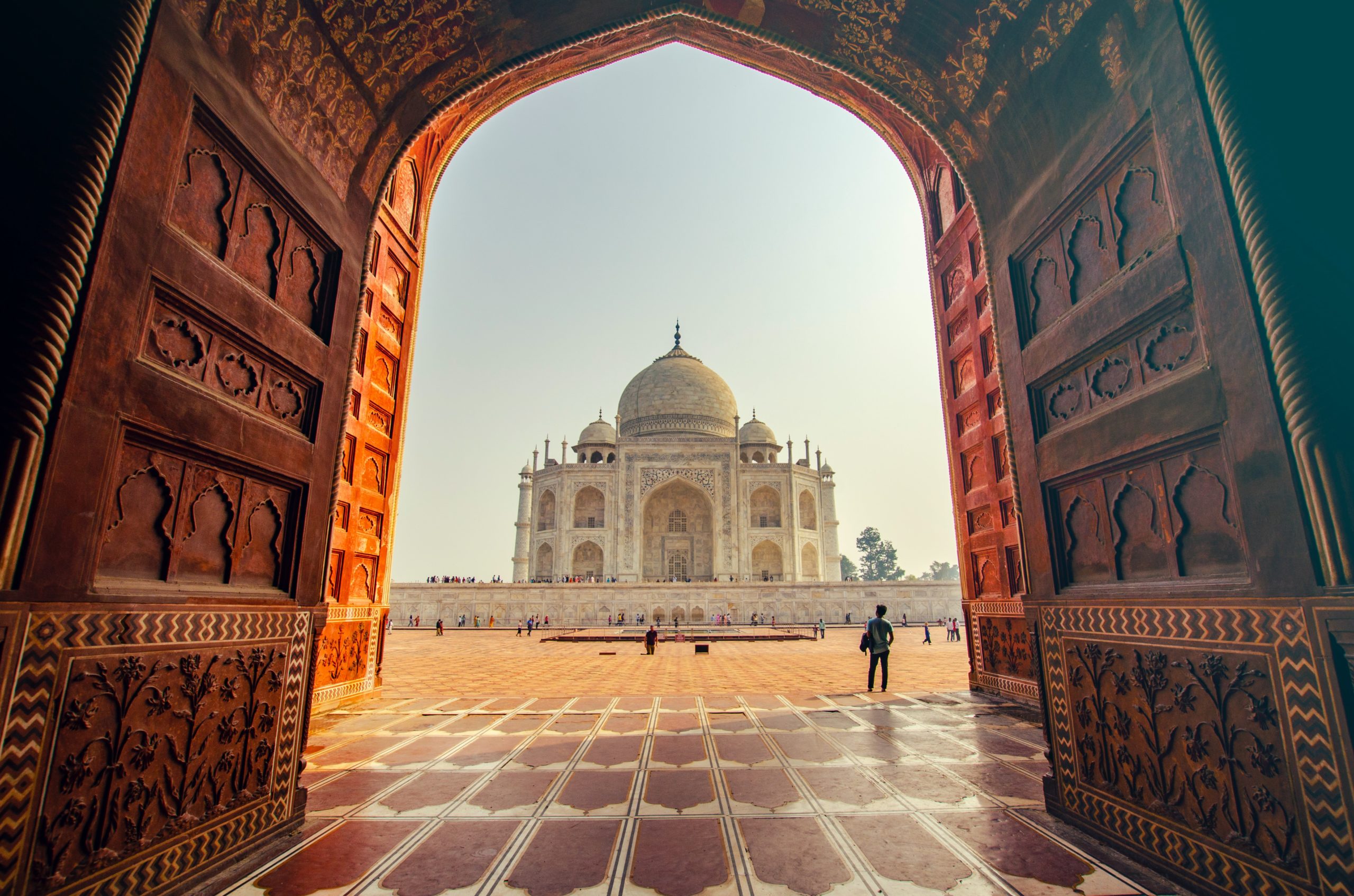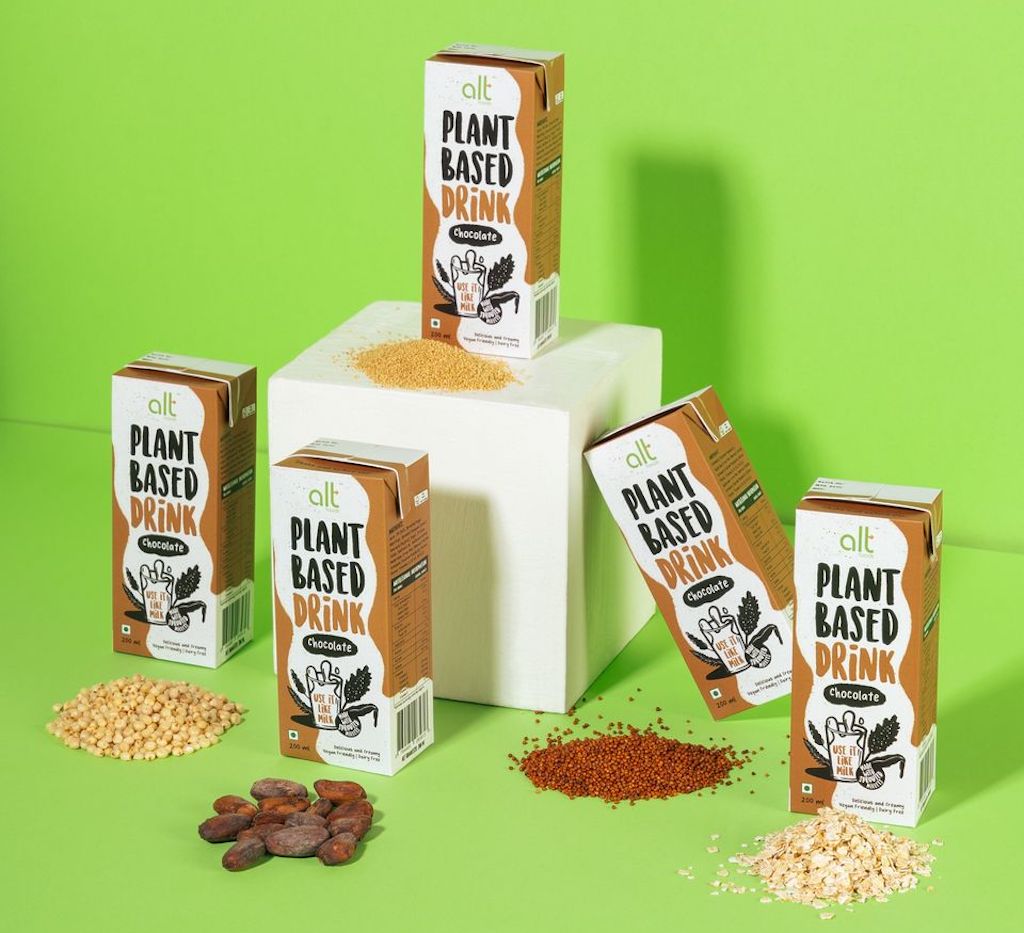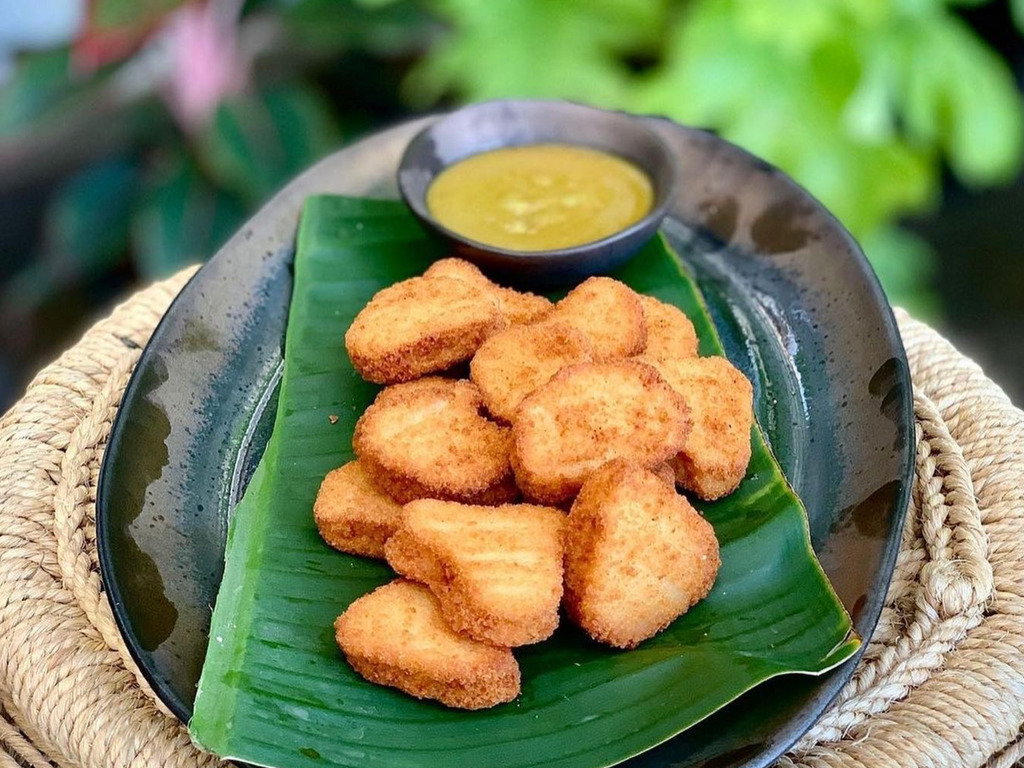This post was originally published on The Asian Age | Home.
-
J&K on Wednesday witnessed a 50 per cent jump in daily Covid cases as the union territory recorded 1,695 fresh cases of coronavirus
-
In a tweet, the BSP chief announced Salman Sayeed as the party’s candidate from Charthawal, Noman Masood from Gangoh Assembly constituencies
This post was originally published on The Asian Age | Home.
-
The party has also fielded Unnao rape victim’s mother Asha Singh from the Unnao Assembly constituency
This post was originally published on The Asian Age | Home.
-
The search operation turned into an encounter after militants opened fire towards the position of security forces
This post was originally published on The Asian Age | Home.
-
The country saw a single day jump of 620 cases of the Omicron variant, the highest so far
This post was originally published on The Asian Age | Home.
-
Somanath, who is at present director of Vikram Sarabhai Space Centre (VSSC), will succeed K Sivan
This post was originally published on The Asian Age | Home.
-
Rajesh Bhushan urged the chief secretaries to direct their departments to ensure adequate buffer stocks of medical oxygen
This post was originally published on The Asian Age | Home.
-
14th round of commanders’ talks held to resolve Ladakh standoff
This post was originally published on The Asian Age | Home.
-
Samajwadi Party supremo Akhilesh Yadav, in a tweet, welcomed Dara Singh Chauhan into the SP
This post was originally published on The Asian Age | Home.
-
Thanks to the Ayushman Bharat scheme, the poor now have access to top quality and affordable health care, the Prime Minister said
This post was originally published on The Asian Age | Home.
-
The real threat from ground based surface-to-air missiles means that there is still a need to keep the Vietnam ‘Wild Weasel’ capability current. The US Navy’s (USN) announcement that the Northrop Grumman AGM-88E Advanced Anti-Radiation Guided Missile – Extended Range (AARGM-ER) had received Milestone C programme approval on 23 August 2021 focused attention on the […]
The post Whither the Weasel? appeared first on Asian Military Review.
This post was originally published on Asian Military Review.
-
The hackers renamed the Ministry’s account as ‘Elon Musk’ and posted some tweets which were later deleted
This post was originally published on The Asian Age | Home.
-
The plea has also sought compliance of apex court’s guidelines to deal with such speeches
This post was originally published on The Asian Age | Home.
-
A possible strategy and mechanism to leverage the private sector in times of peak of demand can be explored, Rajesh Bhushan advised
This post was originally published on The Asian Age | Home.
-
If AAP forms the government in Punjab, we will ensure that we provide necessary security to the PM and the common people, Kejriwal said
This post was originally published on The Asian Age | Home.
-
The committee will be headed by former Supreme Court judge Indu Malhotra
This post was originally published on The Asian Age | Home.
-
The active cases increased to 9,55,319, the highest in 211 days
This post was originally published on The Asian Age | Home.
-
Almost minutes after Mr Maurya’s resignation, a photograph of him with Akhilesh Yadav was shared on the latter’s social media handle
This post was originally published on The Asian Age | Home.
-
4 Mins Read

India’s love affair with dairy is well documented. As a country, it has the largest dairy herd in the world and milk production accounts for 5 percent of the national economy. Local cuisines frequently feature dairy, as well as eggs and chicken. Despite this, India has been identified as a key plant-based market driver, thanks to its emerging smart protein sector.
Not just a location suitable for global brand expansion, India is developing domestic success stories. In 2020, a $2.1 billion development fund was announced to support the dairy and meat processing sectors. Despite this, the smart protein industry is growing competitively.
5 Indian smart protein stories to follow include:

Image courtesy of GoodDot. 1. Swiggy and GoodDot partner up
India’s biggest delivery platform has just announced it will be making GoodDot products available to more Indian households. Items are available for purchase through Swiggy’s Instamart and can be delivered within 15-30 minutes. GoodDot is recognised as one of India’s first vegan meat innovators and a pioneer. Since its inception in 2016, it has secured funding to diversify its range. The company has also moved into food service, opening India’s first vegan fast-food chain, GoodDo.
Eleven Indian cities will have access to GoodDot via Swiggy, with eight more planned. Demand will drive the evolution of this partnership throughout 2022.
2. ITC steps into the plant-based meat scene
One of India’s biggest and most recognisable firms, ITC has confirmed new plans. The conglomerate is embracing plant-based food in a move that will likely impact India’s export market. So far, burger patties and chicken-style nuggets have been confirmed. Both will be available to food service partners and customers. ITC is working with the Good Food Institute India (GFII) on an effective launch strategy.
The size and outreach of ITC make this a story worth following. New lines have the potential to be developed quickly and in quantity.

Image courtesy of alt foods. 3. Alt Foods launches unconventional dairy-free drinks
New plant-based startup Alt Foods has made its debut with two dairy-free drinks. They do not follow the standard path of oat or nut-bases. Both are made using indigenous crops including sprouted sorghum and finger millets. The company has launched in a bid to bring sustainable, domestic alternatives to India. With country-wide demand for dairy-free milk increasing, the development was well-timed.
Moving away from commonplace milk bases allowed alt foods to tap into the allergen-free niche of dairy-free drinks. Chocolate and original are the first flavours brought to market.

Image courtesy of BVeg Foods. 4. BVeg Foods joins forces with QSR Haldiram
BVeg has launched a collaboration with popular restaurant chain Haldiram. Two dishes have been created using the former’s plant-based meats. They will be available as part of the winter menu and served in all 80 restaurants in the country. The move has been seen as part of BVeg’s ambitions to bring plant-based meats to more people in India, as well as the rest of the world. The company plans to make significant infrastructure improvements to allow this to happen.
BVeg has announced plans to become an “end-to-end solution provider” for the plant-based meat sector, working with other startups. It retains a focus on domestic manufacturing alongside global distribution. State-of-the-art facilities will be a major development in BVeg’s story.

Image courtesy of Blue Tribe Foods. 5. Blue Tribe Foods expands its reach
Blue Tribe announced that Jaipur residents will be able to buy plant-based chicken nuggets and keema. The news comes after multiple cities in India already had easy access to the full product range. The Mumbai-based startup launched in early 2021. Initially, five cities were being serviced with direct-to-consumer web sales. This number increased to seven and now, as Jaipur joins the ranks, eight.
Increased distribution and new product lines, including vegan pork sausages, have both come in under a year. That makes this a company worth keeping an eye on.
The GFII’s Smart Protein Summit is a valuable resource when identifying smart protein trends in India. Held virtually due to Covid restrictions, the 2020 event highlighted India’s position as a lynchpin for the plant-based global food system. Nutrition giant Kerry also seemingly confirmed this by revealing findings from a study it carried out. Overall openness to and demand for plant-based foods were identified, with 70 percent of a one billion-strong population claiming to regularly eat meat-free or vegan dishes.
Lead image courtesy of Unsplash.
The post 5 Reasons Why India’s Evolving Smart Vegan Protein Sector Makes It a Country To Watch appeared first on Green Queen.
This post was originally published on Green Queen.
-
Farmerless farms manned by driverless machines, monitored by drones and doused with chemicals to produce commodity crops from patented genetically engineered seeds for industrial ‘biomatter’ to be processed and constituted into something resembling food. Data platforms, private equity firms, e-commerce giants and AI-controlled farming systems.
This is the future that big agritech and agribusiness envisage: a future of ‘data-driven’ and ‘climate-friendly’ agriculture that they say is essential if we are to feed a growing global population.
The transformative vision outlined above which is being promoted by the likes of the Bill and Melinda Gates Foundation amounts to a power grab. Whether through all aspects of data control (soil quality, consumer preferences, weather, etc), e-commerce monopolies, corporate land ownership, seed biopiracy and patenting, synthetic lab-made food or the eradication of the public sector’s role in ensuring food security and national food sovereignty, the aim is for a relative handful of corporations to gain full control of the entire global food system.
Smallholder peasant farming is to be eradicated as the big-tech giants and agribusiness impose their ‘disruptive’ technologies.
This vision is symptomatic of a reductionist mindset fixated on a narrow yield-output paradigm that is unable or more likely unwilling to grasp an integrated social-cultural-economic-agronomic systems approach to food and agriculture that accounts for many different factors, including local/regional food security and sovereignty, diverse nutrition production per acre, water table stability and boosting rural development based on thriving local communities.
Instead, what is envisaged will lead to the further trashing of rural economies, communities and cultures. A vision that has scant regard for the right to healthy and culturally appropriate food and the right of people to define their own food and agriculture systems.
But is any of this necessary or inevitable?
There is no global shortage of food. Even under any plausible future population scenario, there will be no shortage as evidenced by scientist Dr Jonathan Latham in his paper The Myth of a Food Crisis (2020). Furthermore, there are tried and tested approaches to addressing the challenges humanity faces, not least agroecology.
Reshaping agrifood systems
An organic-based, agrifood system could be implemented in Europe and would allow a balanced coexistence between agriculture and the environment. This would reinforce Europe’s autonomy, feed the predicted population in 2050, allow the continent to continue to export cereals to countries which need them for human consumption and substantially reduce water pollution and toxic emissions from agriculture.
That is the message conveyed in the paper Reshaping the European Agro-food System and Closing its Nitrogen Cycle: The potential of combining dietary change, agroecology, and circularity (2020) which appeared in the journal One Earth.
The paper by Gilles Billen et al follows a long line of studies and reports which have concluded that organic agriculture is vital for guaranteeing food security, rural development, better nutrition and sustainability.
For instance, in the 2006 book The Global Development of Organic Agriculture: Challenges and Prospects, Neils Halberg and his colleagues argue that there are still more than 740 million food insecure people (at least 100 million more today), the majority of whom live in the Global South. They say if a conversion to organic farming of approximately 50% of the agricultural area in the Global South were to be carried out, it would result in increased self-sufficiency and decreased net food imports to the region.
In 2007, the UN Food and Agriculture Organization (FAO) noted that organic models increase cost-effectiveness and contribute to resilience in the face of climatic stress. The FAO concluded that by managing biodiversity in time (rotations) and space (mixed cropping), organic farmers use their labour and environmental factors to intensify production in a sustainable way and that organic agriculture could break the vicious circle of farmer indebtedness for proprietary agricultural inputs.
Of course, organic agriculture and agroecology are not necessarily one and the same. Whereas organic agriculture can still be part of the prevailing globalised food regime dominated by giant agrifood conglomerates, agroecology uses organic practices but is ideally rooted in the principles of localisation, food sovereignty and self-reliance.
The FAO recognises that agroecology contributes to improved food self-reliance, the revitalisation of smallholder agriculture and enhanced employment opportunities. It has argued that organic agriculture could produce enough food on a global per capita basis for the current world population but with reduced environmental impact than conventional agriculture.
In 2012, Deputy Secretary General of the UN Conference on Trade and Development (UNCTAD) Petko Draganov stated that expanding Africa’s shift towards organic farming will have beneficial effects on the continent’s nutritional needs, the environment, farmers’ incomes, markets and employment.
A meta analysis conducted by the UN Environment Programme (UNEP) and UNCTAD (2008) assessed 114 cases of organic farming in Africa. The two UN agencies concluded that organic agriculture can be more conducive to food security in Africa than most conventional production systems and that it is more likely to be sustainable in the long term.
The 2009 report Agriculture at a Crossroads by the International Assessment of Agricultural Knowledge, Science and Technology for Development, produced by 400 scientists and supported by 60 countries, recommended agroecology to maintain and increase the productivity of global agriculture. It cites the largest study of ‘sustainable agriculture’ in the Global South, which analysed 286 projects covering 37 million hectares in 57 countries, and found that on average crop yields increased by 79% (the study also included ‘resource conserving’ non-organic conventional approaches).
There are numerous other studies and projects which testify to the efficacy of organic farming, including those from the Rodale Institute, the Oakland Institute, the UN Green Economy Initiative, the Women’s Collective of Tamil Nadu, Newcastle University and Washington State University. We also need look no further than the results of organic-based farming in Malawi.
In Ethiopia, agroecology has been scaled up across the entire Tigray region, partly due to enlightened political leaders and the commitment of key institutions. But Cuba is the one country in the world that has made the biggest changes in the shortest time in moving from industrial chemical-intensive agriculture to organic farming.
Professor of Agroecology Miguel Altieri notes that, due to the difficulties Cuba experienced as a result of the fall of the USSR, it moved towards organic and agroecological techniques in the 1990s. From 1996 to 2005, per capita food production in Cuba increased by 4.2% yearly during a period when production was stagnant across the wider region.
By 2016, Cuba had 383,000 urban farms, covering 50,000 hectares of otherwise unused land and producing more than 1.5 million tons of vegetables. The most productive urban farms yield up to 20 kg of food per square metre, the highest rate in the world, using no synthetic chemicals. Urban farms supply 50 to 70% or more of all the fresh vegetables consumed in cities such as Havana and Villa Clara.
It has been calculated by Altieri and his colleague Fernando R Funes-Monzote that if all peasant farms and cooperatives adopted diversified agroecological designs, Cuba would be able to produce enough to feed its population, supply food to the tourist industry and even export some food to help generate foreign currency.
Serving a corporate agenda
However, global agribusiness and agritech firms continue to marginalise organic, capture public bodies and push for their chemical-intensive, high-tech approaches. Although organic farming and natural farming methods like agroecology offer genuine solutions for many of the world’s pressing problems (health, environment, employment, rural development, etc), these approaches challenge corporate interests and threaten their bottom line.
In 2014, Corporate Europe Observatory released a critical report on the European Commission over the previous five years. The report concluded that the commission had been a willing servant of a corporate agenda. It had sided with agribusiness on genetically modified organisms (GMOs) and pesticides. Far from shifting Europe to a more sustainable food and agriculture system, the opposite had happened, as agribusiness and its lobbyists continued to dominate the Brussels scene.
Consumers in Europe reject GM food, but the commission had made various attempts to meet the demands from the biotech sector to allow GMOs into Europe, aided by giant food companies, such as Unilever, and the lobby group FoodDrinkEurope.
The report concluded that the commission had eagerly pursued a corporate agenda in all the areas investigated and pushed for policies in sync with the interests of big business. It had done this in the apparent belief that such interests are synonymous with the interests of society at large.
Little has changed since. In December 2021, Friends of the Earth Europe (FOEE) noted that big agribusiness and biotech corporations are currently pushing for the European Commission to remove any labelling and safety checks for new genomic techniques. Since the beginning of their lobbying efforts (in 2018), these corporations have spent at least €36 million lobbying the European Union and have had 182 meetings with European commissioners, their cabinets and director generals: more than one meeting a week.
According to FOEE, the European Commission seems more than willing to put the lobby’s demands into a new law that would include weakened safety checks and bypass GMO labelling.
Corporate influence over key national and international bodies is nothing new. From the World Bank’s ‘enabling the business of agriculture’ and the influence of foreign retail on India’s NITI Aayog (the influential policy commission think tank of the Government of India) to the Gates Foundation’s role in opening up African agriculture to global food and agribusiness oligopolies, democratic procedures at sovereign state levels are being bypassed to impose seed monopolies and proprietary inputs on farmers and to incorporate them into a global agrifood chain dominated by powerful corporations.
But there are now also new players on the block. Amazon, Google, Microsoft, Facebook and others are closing in on the global agrifood sector while the likes of Bayer, Syngenta, Corteva and Cargill continue to cement their stranglehold.
The tech giants entry into the sector will increasingly lead to a mutually beneficial integration between the companies that supply products to farmers (pesticides, seeds, fertilisers, tractors, etc) and those that control the flow of data and have access to digital (cloud) infrastructure and food consumers. In effect, multi-billion dollar agrifood data management markets are being created.
In India, Walmart and Amazon could end up dominating the e-retail sector. These two US companies would also own India’s key consumer and other economic data, making them the country’s digital overlords along with Google and Facebook.
The government is facilitating the dominance of giant corporations, not least through digital or e-commerce platforms. E-commerce companies not only control data about consumption but also control data on production, logistics, who needs what, when they need it, who should produce it, who should move it and when it should be moved.
These platforms have the capacity to shape the entire physical economy. We are seeing the eradication of the marketplace in favour of platforms owned by global conglomerates which will control everything from production to logistics, including agriculture and farming.
The farmer will be told how much production is expected, how much rain is anticipated, what type of soil quality there is, what type of (GM) seeds and proprietary inputs are required and when the produce needs to be ready.
E-commerce platforms will become permanently embedded once artificial intelligence begins to plan and determine all of the above.
In April 2021, the Indian government signed a Memorandum of Understanding (MoU) with Microsoft, allowing its local partner CropData to leverage a master database of farmers. The MoU seems to be part of the AgriStack policy initiative, which involves the roll out of ‘disruptive’ technologies and digital databases in the agricultural sector.
CropData will be granted access to a government database of 50 million farmers and their land records. As the database is developed, it will include farmers’ personal details, profile of land held, production data and financial details.
In addition to facilitating data harvesting and a data management market, the Indian government is trying to establish a system of ‘conclusive titling’ of all land in the country, so that ownership can be identified and land can then be valued, bought or taken away.
The plan is that, as farmers lose access to land or can be identified as legal owners, predatory global institutional investors will buy up and amalgamate holdings, facilitating the further roll out of high-input, corporate-dependent industrial agriculture.
This is an example of stakeholder-partnership capitalism, much promoted by the likes of the World Economic Forum, whereby a government facilitates the gathering of such information by a private player which can then, in this case, use the data for developing a land market (courtesy of land law changes that the government enacts) for institutional investors at the expense of smallholder farmers who will find themselves displaced.
By harvesting information – under the benign-sounding policy of data-driven agriculture – private corporations will be better placed to exploit farmers’ situations for their own ends.
Imagine a cartel of data owners, proprietary input suppliers and retail concerns at the commanding heights of the global economy, peddling toxic industrial (and lab-engineered) ‘food’ and the devastating health and environmental impacts associated with it.
As for elected representatives and sovereign state governments, their role will be highly limited to technocratic overseers of these platforms and the artificial intelligence tools that plan and determine all of the above.
But none of this is set in stone or inevitable. The farmers victory in India in getting the corporate-friendly farm laws repealed show what can be achieved, even if this is only viewed as a spanner in the works of a global machine that is relentless.
New world order
And that machine comprises what journalist Ernst Wolff calls the digital-financial complex that is now driving the globalisation-one agriculture agenda. This complex comprises many of the companies mentioned above: Microsoft, Alphabet (Google), Apple, Amazon and Meta (Facebook) as well as BlackRock and Vanguard, transnational investment/asset management corporations.
These entities exert control over governments and important institutions like the European Central Bank (ECB) and the US Federal Reserve. Indeed, Wolff states that BlackRock and Vanguard have more financial assets than the ECB and the Fed combined.
To appreciate the power and influence of BlackRock and Vanguard, let us turn to the documentary Monopoly: An Overview of the Great Reset which argues that the stock of the world’s largest corporations are owned by the same institutional investors. This means that ‘competing’ brands, like Coke and Pepsi, are not really competitors, since their stock is owned by the same investment companies, investment funds, insurance companies and banks.
Smaller investors are owned by larger investors. Those are owned by even bigger investors. The visible top of this pyramid shows only two companies: Vanguard and Black Rock.
A 2017 Bloomberg report states that both these companies in the year 2028 together will have investments amounting to 20 trillion dollars. In other words, they will own almost everything worth owning.
The digital-financial complex wants control over all aspects of life. It wants a cashless world, to destroy bodily integrity with a mandatory vaccination agenda linked to emerging digital-biopharmaceutical technologies, to control all personal data and digital money and it requires full control over everything, including food and farming.
If events over the last two years have shown us anything, it is that an unaccountable authoritarian global elite knows the type of world it wants to create, has the ability to coordinate its agenda globally and will use deception and duplicity to achieve it. And in this brave new Orwellian world where capitalist ‘liberal democracy’ has run its course, there will be no place for genuinely independent nation states or individual rights.
The independence of nation states could be further eroded by the digital-financial complex’s ‘financialisation of nature’ and its ‘green profiling’ of countries and companies. If we take the example of India, again, the Indian government has been on a relentless drive to attract inflows of foreign investment into government bonds (creating a lucrative market for global investors). It does not take much imagination to see how investors could destabilise the economy with large movements in or out of these bonds but also how India’s ‘green credentials’ could be factored in to downgrade its international credit rating.
And how could India demonstrate its green credentials and thus its ‘credit worthiness’? Perhaps by allowing herbicide-resistant GMO commodity crop monocultures that the GM sector misleadingly portrays as ‘climate friendly’.
As for concepts such as localisation, food sovereignty, self-reliance and participatory democracy – key tenets of agroecology – these are mere inconveniences to be trampled on.
Olivier De Schutter, former UN special Rapporteur on the right to food, delivered his final report to the UN Human Rights Council in 2011, based on an extensive review of scientific literature. He concluded that by applying agroecological principles to the design of democratically controlled agricultural systems we can help to put an end to food crises and address climate variabilities and poverty challenges.
De Schutter argued that agroecological approaches could address food needs in critical regions and double food production within 10 years. However, he notes there is insufficient backing for organic-based farming which seriously hinders progress.
But it is not just a case of insufficient backing. Global agribusiness and agritech corporations have leveraged themselves into strategic positions and integral to their strategy has been attacks on organic farming as they attempt to cast it as a niche model which cannot feed the world. From the false narrative that industrial agriculture is necessary to feed a growing population to providing lavish research grants and the capture of important policy-making institutions, these firms have secured a thick legitimacy within policy making machinery.
These conglomerates regard organic approaches as a threat, especially agroecology which adheres to a non-industrial, smallholder model rooted in local independent enterprises and communities based on the principle of localisation. When people like De Schutter assert the need for a “democratically controlled” agroecology, this runs counter to the reality of large agribusiness firms, their proprietary products and their globalisation agenda based on long supply chains, market dependency, dispossession and the incorporation of farms and farmers into their agrifood regime. And as we can see, ‘democracy’ has no place in the world of the digital-financial complex.
The 2015 Declaration of the International Forum for Agroecology argues for building grass-root local food systems that create new rural-urban links, based on truly agroecological food production. It says that agroecology should not be co-opted to become a tool of the industrial food production model; it should be the essential alternative to it.
The declaration stated that agroecology is political and requires local producers and communities to challenge and transform structures of power in society, not least by putting the control of seeds, biodiversity, land and territories, waters, knowledge, culture and the commons in the hands of those who feed the world.
According to Pat Mooney of the ETC Group, this involves developing healthy and equitable agroecological production systems, building short (community-based) supply chains and restructuring and democratising governance systems that could take 25 years to accomplish: in effect a ‘long food movement’.
We are currently living through epoch-defining changes and the struggle for the future of food and agriculture is integral to the wider struggle over the future direction of humanity. There is a pressing need to transition towards a notion of food sovereignty based on agroecological principles and the local ownership and stewardship of common resources.
The post Living in Epoch-Defining Times: Food, Agriculture and the New World Order first appeared on Dissident Voice.This post was originally published on Dissident Voice.
-
The total number of medical colleges (both govt and private) has increased from 387 to 596, a jump of around 54 per cent
This post was originally published on The Asian Age | Home.
-
A Bench headed by justice Sanjay Kishan Kaul disposed of the PIL saying it has now become infructuous beacuse of the clearance of roads
This post was originally published on The Asian Age | Home.
-
The experts cited safety concerns, arguing that Molnupiravir was not of much benefit in Covid treatment
This post was originally published on The Asian Age | Home.
-
NCW chief Rekha Sharma has written to Twitter India to block the actor’s account
This post was originally published on The Asian Age | Home.
-
The missile is a joint venture between India and Russia, where DRDO represents the Indian side
This post was originally published on The Asian Age | Home.
-
The campaigner will reach out to voters, including women and beneficiaries of different schemes, he said
This post was originally published on The Asian Age | Home.
-
According to the health ministry, 9,84,676 precautionary doses of the COVID vaccine were administered on Monday
This post was originally published on The Asian Age | Home.
-
The administration also imposed a night curfew from 10 pm to 6 am in the district
This post was originally published on The Asian Age | Home.
-
An increase of 97,827 cases has been recorded in the active COVID-19 caseload in a span of 24 hours
This post was originally published on The Asian Age | Home.
-
The health ministry advised retired medical professionals or MBBS students could be roped in for teleconsultation services
This post was originally published on The Asian Age | Home.